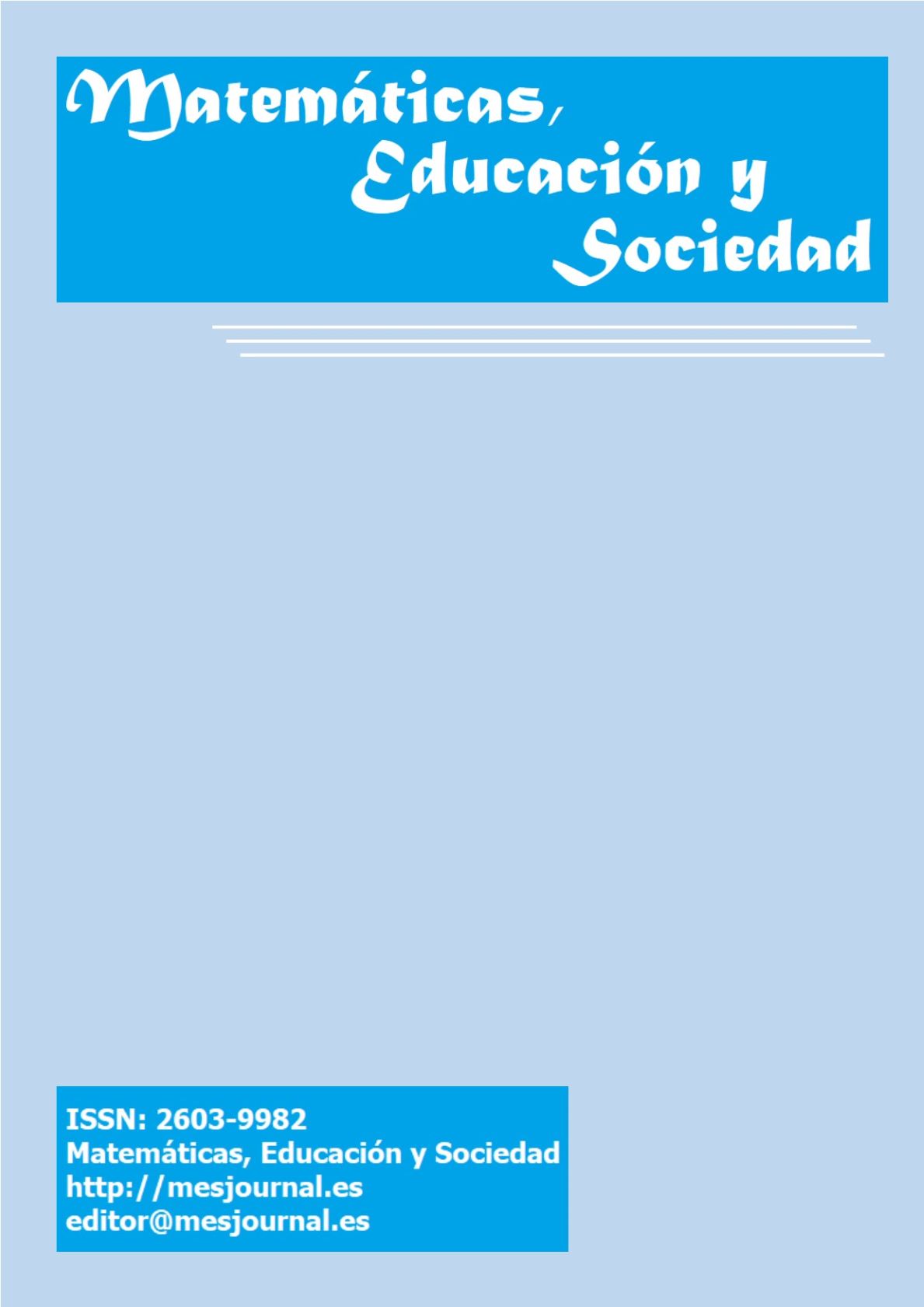Algebraic errors in the productions of university students from Costa Rica and Mexico
Main Article Content
Abstract
In this work, the frequent errors committed by university students when performing algebraic tasks are comparatively analyzed. A questionnaire focused on the levels of understanding of the use of letters was applied and it was also approached from the algebra approaches. This study is carried out from the quantitative approach with diagnostic and descriptive character. The sample is made up of 54 students from Costa Rica and Mexico. As a result, it was found that most students make calculation errors or have poor learning, they resort to arithmetic procedures and there is evidence of an inability to establish mathematical models.
Downloads
Article Details
This work is licensed under a Creative Common License (CC BY 3.0 ES)
References
Abrate, R., Pochulu, M. y Vargas, J. (2006). Errores y dificultades en Matemática: Análisis de causas y sugerencias de trabajo [versión digital pdf]. Buenos Aires, Argentina: Universidad Nacional de Villa María.
Ashlock, R. (2002). Error patterns in computation: using error patterns to improve instruction. (9th Edition). Columbus, USA.
Barrón, J., Ruiz, O., Luna, J., Estrada, J. y Loera , E. (2013). Errores matemáticos más comunes de los alumnos de nuevo ingreso en las clases de física y matemáticas de las carreras de ingeniería de la UACJ. Cultura Científica Y Tecnológica, (50). Recuperado a partir de http://erevistas.uacj.mx/ojs/index.php/culcyt/article/view/933
Bolaños-González, H., y Lupiáñez-Gómez, J. L. (2021). Errores en la comprensión del significado de las letras en tareas algebraicas en estudiantado universitario. Uniciencia, 35(1), 1-18. https://dx.doi.org/10.15359/ru.35-1.1
Bachor, D., (1979), Using Work Samples as Diagnostic Information.Learning Disability Quarterly.Vol. 2, No. 1 pp. 45-52. DOI: https://doi.org/10.2307%2F1510838
Brodie, K. (2014). Learning about learner errors in professional learning communities. Educational Studies in Mathematics, 85, 221–239. http://dx.doi.org/10.1007/s10649-013-9507-1
Brown, S., Findley, K., y Montfort, D. (2007). Student Understanding of States of Stress in Mechanics of Materials. The International Journal on the Biology of Stress, (August), 1994-2000.
Castillo-Sánchez, M., Gamboa-Araya, R., y Hidalgo-Mora, R. (2020). Factores que influyen en la deserción y reprobación de estudiantes de un curso universitario de matemáticas. Uniciencia, 34(1), 219-245. http://dx.doi.org/10.15359/ru.34-1.13
Chi, M. T. H., y Roscoe, R. D. (2002). The process and challenges of conceptual change. In M. Limon y L. Mason (Eds.), Reconsidering conceptual change: Issues in theory and practice (pp. 3-27). Dordrecht: Kluwer. https://education.asu.edu/chi-m-t-h-roscoe-r-d-2002-processes-and-challenges-conceptual-change-m-limon-and-l-mason-eds-0.
Documento base del Bachillerato General. (2018). Boletín oficial del Estado. https://www.dgb.sep.gob.mx/informacionacademica/pdf/Doc_Base_22_11_2018_dgb.pdf
Dodera, G., Bender, G., Burroni, E. y Lázaro, M. (2014). Errores, actitud y desempeño matemático del ingresante universitario. Unión Revista Iberoamericana de Educación Matemática, (38), 69-84.
Escuela de Matemática. (2017). Carta al estudiante del curso de servicio MAT001 Matemática General. Universidad Nacional, Costa Rica: Documento no publicado.
Fischbein, E. (1987). Intuition in Science and Mathematics. Dordrecht: Reidel.
Gamboa Araya, R., Castillo Sánchez, M., e Hidalgo Mora, R. (2019). Errores matemáticos de estudiantes que ingresan a la universidad. Actualidades Investigativas en Educación, 19(1), 104-136. 10.15517/AIE.V19I1.35278
Fischbein, E. (1987). Intuition in Science and Mathematics. Dordrecht: Reidel.
García, J., Segovia, I., & Lupiáñez, J. L. (2011). Errores y dificultades de estudiantes mexicanos de primer curso universitario en la resolución de tareas algebraicas. Lupiáñez, J. L., Cañadas, M. C., Molina, M., Palarea, M., & Maz, A. (Eds.). Investigaciones en pensamiento numérico y algebraico e historia de la matemática y educación matemática, 145-155. Granada, España: Departamento de Didáctica de la Matemática. Universidad de Granada. Recuperado de http://funes.uniandes.edu.co/2018/1/GarciaSegoviaLupianez2011.pdf.
García, J. (2016). Errores y dificultades de estudiantes de primer curso universitario en la resolución de tareas algebraicas (Doctoral dissertation, Tesis doctoral). Universidad de Granada, España. https://digibug.ugr.es/handle/10481/43529
Godino, J., y Font, V. (2003). Razonamiento algebraico y su didáctica para maestros. Universidad de Granada, Departamento de Didáctica de la Matemática
Hiebert, J., y Lefevre, P. (1986). Conceptual and procedural knowledge in mathematics: An introductory analysis. In J. Hiebert (Ed.), Conceptual and procedural knowledge: The case of mathematics (pp. 1-27). Hillsdale, NJ: Lawrence Erlbaum Associates.
Kieran, C. (1992). The learning and teaching of school algebra. In D. A. Grouws (Ed.), Handbook of research on mathematics teaching and learning (pp. 390-419). New York: Macmillan.
Küchemann, D. (1980). The understanding of generalized arithmetic (algebra) by secondary school children. Doctoral dissertation, Chelsea College, University of London.
Mason, L. (2002). c, in M. Limón y L. Mason (Eds.), Reconsidering conceptual change. Issues in theory and practice (pp. 301-336), Dordrecht (NL), Kluwer
Matz, M. (1982). Towards a Process Model for High School Algebra Errors. In D. Sleeman y J.S. Brown (Eds.), Intelligent Tutoring Systems (pp. 25-50). New York: Academic Press.
Ministerio de Educación Pública (2012). Programas de estudio de Matemática.
Payne, S. J. and Squibb, H. R. (1990), Algebra Mal-Rules and Cognitive Accounts of Error. Cognitive Science, 14: 445–481. https://doi.org/10.1016/0364-0213(90)90019-S
Resnick, L., S. Omanson (1987). Learning to understand arithmetic. Advances in instructional psychology, 41-95.
Saucedo, G. (2007). Categorización de Errores Algebraicos en Alumnos Ingresantes a la Universidad. Itinerarios Educativos, 1(2), 22-43. https://doi.org/10.14409/ie.v1i2.3898
Silver, E. A. (1986). Using conceptual and procedural knowledge: A focus on relationships. In J. Hiebert (Ed.), Conceptual and procedural knowledge: The case of mathematics (pp. 181-197). Hillsdale, NJ: Lawrence Erlbaum
Stavy, R. y Tirosh, D. (2000). How Students (Mis-) Understand Science and Mathematics: Intuitive Rules. Teachers College Press. New York.
Townsend, B. (2005). Examining secondary students’ algebraic reasoning: flexibility and strategy use. [Tesis de doctorado inédita]. Universidad de Missouri-Columbia.
Ursini, S., y Trigueros, M. (2006). ¿Mejora la comprensión del concepto de variable cuando los estudiantes cursan matemáticas avanzadas? Educación Matemática, 18(3),5-38. [fecha de Consulta 2 de enero de 2021]. https://www.redalyc.org/articulo.oa?id=40518302
Usiskin, Z. (1988). Conceptions of school algebra and uses of variable. In A. F. Coxford y A. P. Shulte (Eds.), The ideas of algebra, K-12 (1988 Yearbook of the National Council of Teachers of Mathematics, pp. 8-19). Reston, VA: NCTM. http://www.math.wisc.edu/~kwon/135Spring2014/alg.pdf
VanLehn, K. (1990). Mind bugs: origins of procedural misconceptions. Cambridge, Mass: MIT Press.
Vosniadou, S. y Verschaffel, L. (2004) Extending the Conceptual Change Approach to Mathematics Learning and Teaching. In L., Verschaffel and S. Vosniadou (Guest Editors), Conceptual Change in Mathematics Learning and Teaching, Special Issue of Learning and Instruction, 14, 5, 445-451. https://psycnet.apa.org/doi/10.1016/j.learninstruc.2004.06.014

